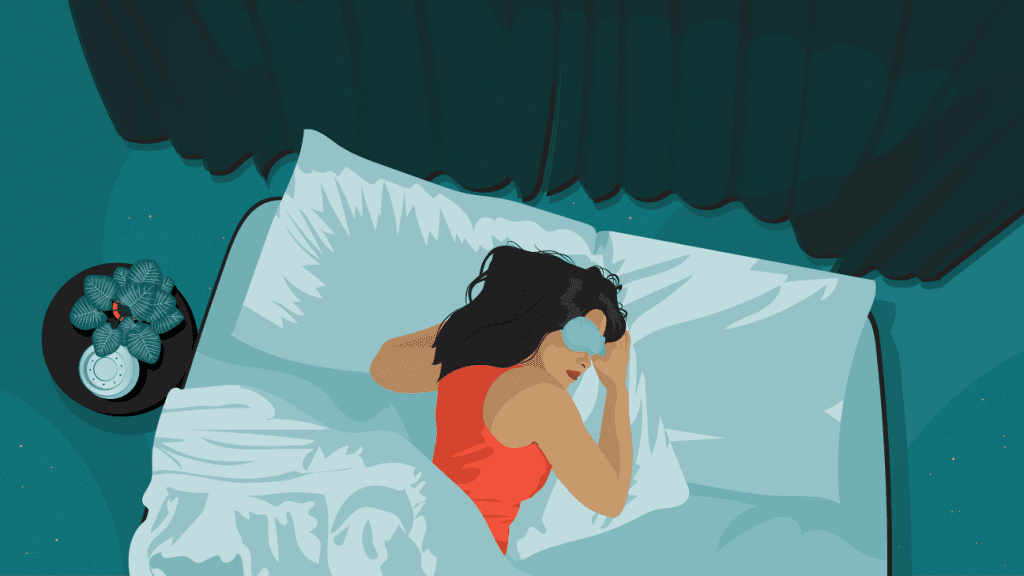Waking up in the middle of the night can feel like a never-ending cycle. You stir around 3am or 5am, inevitably waking your partner too, leaving both of you groggy and irritable. What’s causing this disruptive pattern? And more importantly, how can you put an end to it? In this article, we dive into the reasons why you may be waking up at these early hours, the role of sleep cycles, and effective solutions for more restful nights.
Understanding Sleep Cycles and Why They Matter

To address why you’re waking up so early, it’s crucial to understand sleep cycles. A typical night’s sleep is divided into 90-minute cycles, progressing through different stages: light sleep, deep sleep, and rapid eye movement (REM) sleep. Each cycle serves unique functions—deep sleep is restorative, while REM is associated with dreaming and memory consolidation.
Between 3am and 5am, you’re often in the lighter stages of sleep or REM sleep, where your brain activity is heightened. This period of lighter sleep makes you more susceptible to waking up from minor disturbances, whether it’s a creak in the house or even internal factors like a racing mind or a need to use the bathroom. Understanding this natural rhythm is the first step to reclaiming your rest.
Common Causes for Waking Up Between 3am and 5am
Waking up in the early morning hours isn’t unusual, but it can become problematic if it happens frequently. The reasons behind this can be diverse, ranging from physical health issues to lifestyle choices. Let’s explore some of the most common culprits.
1. Physical Health Conditions
Certain physical health issues can disrupt sleep patterns, causing frequent awakenings. Some of these conditions include:
- Sleep Apnea: This condition, where your breathing repeatedly stops and starts during sleep, often leads to abrupt wake-ups. People with sleep apnea may not be aware they’re waking up, but it can result in feeling tired throughout the day.
- Chronic Pain: Pain from conditions like arthritis or fibromyalgia can pull you out of deeper sleep stages, especially as your body shifts around to find a comfortable position.
- Hormonal Changes: Women going through menopause may experience hot flashes or night sweats that cause them to wake up. Even small hormonal fluctuations can interfere with sleep quality.
- Nocturia: If you frequently wake up needing to use the bathroom, this could be due to nocturia, or an increased urge to urinate during the night.
2. Emotional and Mental Health Triggers
Emotional stress and mental health issues, such as anxiety and depression, play a significant role in sleep disturbances. Here’s how they can impact your sleep:
- Stress and Anxiety: These emotions increase levels of cortisol, a stress hormone that keeps your body in a state of alertness. As a result, you may wake up feeling anxious or overthinking, unable to fall back asleep.
- Depression: Often, depression can cause early-morning waking. It’s linked to changes in your circadian rhythm and the disruption of natural sleep-wake cycles.
3. Lifestyle and Environmental Influences
Your daily habits and environment also have a major impact on your sleep quality. If you’ve been waking up early, consider if any of these factors are at play:
- Irregular Sleep Schedules: Staying up late or sleeping at different times every day can confuse your body’s internal clock. A consistent sleep schedule is essential for maintaining a healthy circadian rhythm.
- Electronic Devices: The blue light emitted by screens can suppress melatonin production, a hormone crucial for sleep. Using phones or laptops late at night can make it harder to fall asleep and stay asleep.
- Diet and Stimulants: Consuming caffeine or alcohol in the evening can affect your sleep cycle. Caffeine is a stimulant, and while alcohol may help you fall asleep initially, it can lead to fragmented sleep later in the night.

How Stress and Anxiety Contribute to Early-Morning Wake-Ups
Stress and anxiety don’t just impact your day—they can follow you into the night. If your mind is racing with worry or fear, your body may struggle to fully relax, keeping you from reaching the deepest stages of sleep. This stress can easily jolt you awake in the lighter sleep stages, particularly between 3am and 5am, when your brain is most active.
To counteract these effects, consider incorporating relaxation techniques such as meditation, deep breathing exercises, or gentle stretching before bed. These practices help lower cortisol levels, enabling you to stay asleep longer.
Effective Tips for Better Sleep Quality

If early wake-ups have become a persistent issue, there are several practical strategies you can implement to improve your sleep quality. Here are some proven tips to help you sleep better:
1. Maintain a Consistent Sleep Schedule
Going to bed and waking up at the same time every day helps regulate your body’s internal clock. Aim to stick to your schedule, even on weekends, to reinforce a regular sleep pattern.
2. Create a Relaxing Bedtime Routine
Engage in calming activities before bed, such as reading, listening to soothing music, or taking a warm bath. These actions signal to your body that it’s time to wind down, making it easier to fall asleep.
3. Limit Stimulants and Alcohol Before Bed
Avoid caffeine in the afternoon and evening, as it can stay in your system for hours. Similarly, limit alcohol, which, while initially sedating, can cause sleep disruptions later in the night.
Designing a Sleep-Friendly Environment

Your sleep environment plays a crucial role in how well you rest. To optimize your bedroom for better sleep:
- Keep it Cool and Dark: A cooler room, between 60-67°F, is ideal for sleep. Blackout curtains or a sleep mask can also help eliminate light disruptions.
- Reduce Noise: Use earplugs or a white noise machine to drown out any sounds that might wake you up. Even small noises, like a dripping faucet, can disrupt light sleep stages.
- Invest in Comfortable Bedding: Quality mattresses and pillows tailored to your preferred sleep position can make a noticeable difference in your comfort level and sleep quality.
When to Seek Professional Help
If lifestyle changes and sleep environment adjustments haven’t improved your sleep, it may be time to consult a healthcare provider. A sleep specialist can evaluate your symptoms, run tests if necessary, and recommend therapies such as cognitive-behavioral therapy for insomnia (CBT-I), which is particularly effective for managing sleep disturbances. In some cases, medications may be prescribed to address underlying issues.
Conclusion
Waking up between 3am and 5am may feel frustrating, but understanding the underlying causes and making targeted changes can significantly improve your sleep quality. By prioritizing your sleep environment, incorporating relaxation techniques, and maintaining healthy sleep habits, you can regain control of your rest. Remember, restful nights lead to energized days—so take the steps needed to get the quality sleep you deserve.


